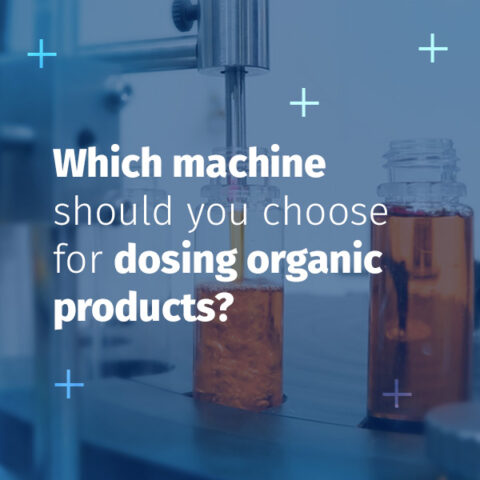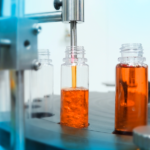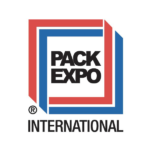The organic market continues to grow rapidly : oils, honey, juices, syrups, sauces, natural cosmetics, and more. Packaging plays a strategic role in maintaining product quality, ensuring traceability, and attracting consumers. Selecting the right dosing machine is essential and must be considered alongside other key steps such as capping (screw cappers, sealers) and labeling.
The Specific Requirements of Organic Packaging
Packaging organic products requires strict attention to:
- Hygiene: equipment must be easy to clean and built with materials that comply with food-grade standards.
- Dosing precision: accurate volume control reduces waste and ensures declared quantities.
- Container versatility: glass bottles, recyclable plastic jars, metal cans, and more.
- Presentation quality: hermetic sealing and clear, compliant labeling.
Which Filling Technology Should You Choose?
The right filler depends primarily on product texture:
- Piston fillers : ideal for thick or viscous products (honey, purees, organic creams). They deliver bubble-free, consistent fills. Example: the K-Dense, a robust automatic filler for dense products.
- Peristaltic fillers : best suited for small volumes and sensitive products (essential oils, syrups). This technology preserves product quality and allows quick product changeovers.
Both options ensure reliable, repeatable, and standards-compliant filling.
Capping: An important Step
Once filled, containers must be properly sealed to protect the product:
- Automatic screw cappers: perfect for glass or plastic bottles with screw caps (juices, oils, cosmetics).
- Capping machines: suited for jars or bottles requiring capsules or sealed closures.
Labeling Organic Products
Labels are a key element of transparency and trust for consumers. In the organic sector, they must be legible, complete, and compliant with regulations (ingredient list, batch number, organic certifications).
Examples of CDA solutions:
- Ninette Flat: ideal for square jars, flat bottles, or rectangular containers, ensuring wrinkle-free application.
- Solo 1500: designed for cylindrical bottles, delivering fast and consistent automatic labeling.
- Mini-format solutions: accurate labeling for small bottles of essential oils, samples, or cosmetic jars.
Monoblocs: All-in-One Solutions for Organic Packaging
For producers seeking to save space and automate the entire process, monobloc machines combine filling, capping and labeling into one compact unit. The result: greater productivity and versatility across multiple container types.
The choice of a dosing machine for organic products depends on:
- The nature of the product (liquid, viscous, sensitive)
- The type of container used
- The desired level of automation (semi-automatic or automatic)
From small artisanal workshops to large-scale industrial lines, CDA provides tailored solutions: fillers, cappers, labelers, and complete monoblocs.
FAQ
What makes dosing organic products unique?
Precise and hygienic dosing is critical. Machines must be easy to clean and meet food-grade standards.
Which machine is best for organic liquids?
Volumetric or peristaltic fillers are ideal for juices, oils, and syrups.
What about viscous organic products?
Piston fillers are recommended for honey, creams, and purees.
How to choose based on production speed?
For small batches, a semi-automatic filler is sufficient. For higher volumes, an automatic filler or monobloc system is more suitable.







